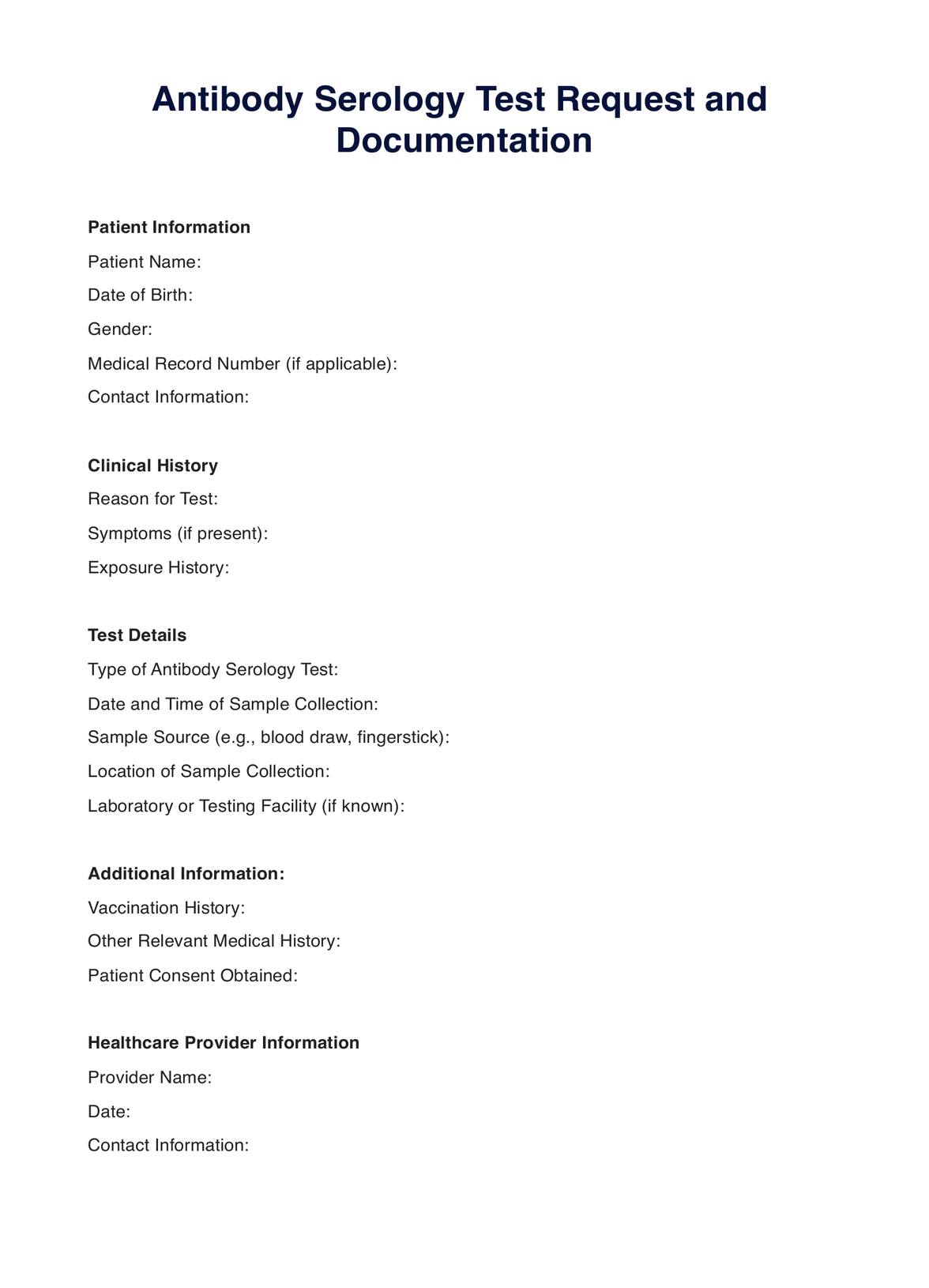Healthcare providers and individuals, often in consultation with a healthcare professional, can request antibody serology tests.

Antibody Serology
Discover the significance and applications of the Antibody Serology Test. Learn when and how to use this vital diagnostic tool.
Use Template
Antibody Serology Template
Commonly asked questions
They are used to assess past infections, monitor vaccine responses, estimate disease prevalence, and conduct epidemiological studies during outbreaks.
A blood sample is collected via a simple blood draw or fingerstick. The sample is sent to a laboratory for analysis, and results are interpreted to determine antibody presence.
EHR and practice management software
Get started for free
*No credit card required
Free
$0/usd
Unlimited clients
Telehealth
1GB of storage
Client portal text
Automated billing and online payments











